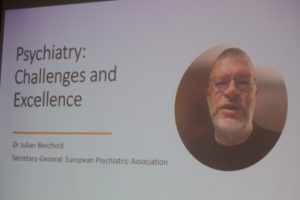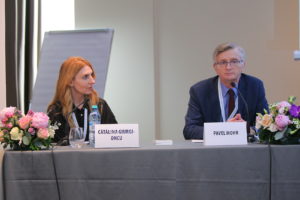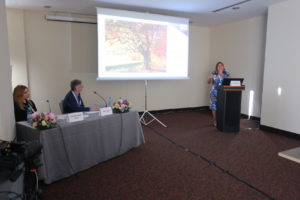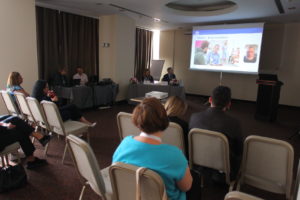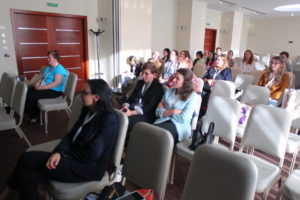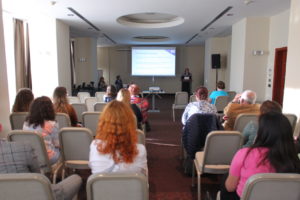Coordinated Specialist Acute Care in (First Episode) Psychosis
On 23 May 2024, during the National Conference of Psychiatry, the Romanian Association of Psychiatry and Psychotherapy, in collaboration with the EPA, hosted a symposium on “Coordinated Specialist Acute Care in (First Episode) Psychosis” in Timișoara, Romania. This topic is crucial as it focuses on how coordinated specialist acute care in first episode psychosis significantly enhances long-term outcomes and quality of life. This is achieved through early, comprehensive, and effective treatment, which reduces hospitalization, prevents relapse, and supports patients and their families, emphasizing the importance of individualized disease management. The symposium was chaired by Associate Professor Cătălina Giurgi-Oncu from Timișoara, Romania.
- Challenges for psychiatry
Prof. Julian Beezhold (EPA Secretary General), from the United Kingdom, delivered a lecture on the necessity of evidence-based medicine in contemporary practice, highlighting the critical role of rigorous and ongoing research in psychiatry. He also addressed significant challenges faced by psychiatrists, including suicide prevention and the use of coercion. His presentation aimed to inspire specialists to strive for excellence and to empower patients.
- Can antipsychotics prevent transition to psychosis in high-risk population?
Prof. Pavel Mohr (EPA Board Member) from Prague, Czech Republic, discussed early interventions for high-risk populations for psychotic disorders. He emphasized that timely intervention during the prodromal phase can improve illness outcomes. He noted that few randomised controlled trials with antipsychotics have been conducted, and a network meta-analysis showed no superiority of drug therapy over alternative strategies in preventing psychosis. Antipsychotic exposure is actually linked to an increased risk of transitioning to psychosis, often due to the severity of symptoms at baseline. Prof. Mohr stressed the need for close monitoring and tailored support for those at highest risk.
- Conceptual models of insight and peculiarities in first psychotic episode
Senior Lecturer Cătălina-Angela Crișan (Cluj-Napoca, Romania) discussed the multidimensional concept of insight in first psychotic episodes. She highlighted the frequent lack of insight in psychosis, which include understanding the disease’s nature, social consequences, etiology, and need for treatment. She noted the distinction between psychical insight (recognizing the illness) and emotional insight (accepting the illness). She also presented a new model, explaining lack of awareness through subjectification and objectification processes. Her presentation emphasized the significant impact of poor disease awareness on patients’ outcomes.
- Psychosis – Multicultural perspectives
Associate Professor Adriana Mihai (Târgu Mureș, Romania) examined the profound influence of culture on individuals’ interpretation of information and their perception of reality, which shapes their values and attitudes crucial for mental health assessment. In our interconnected world today, recognizing a patient’s cultural background is vital for precise diagnosis and timely treatment of psychosis. Cultural factors notably influence the Duration Until the First Treatment (DUP) in psychosis. The presentation illustrated clinical examples that underscored the potential risks of diagnostic inaccuracies stemming from cultural misunderstandings and explored how magical thinking and learned behaviors impact psychosis diagnosis.
The event served as a platform for sharing knowledge, experiences, and expertise, ultimately advancing the mission of the EPA. In an evolving world, these discussions are pivotal in shaping the future of mental health care, advocating for its universal value, promotion, and protection. The EPA Symposium achieved notable success, highlighting the commitment and enthusiasm of European psychiatrists collaborating toward a future where mental health is a priority for everyone.
